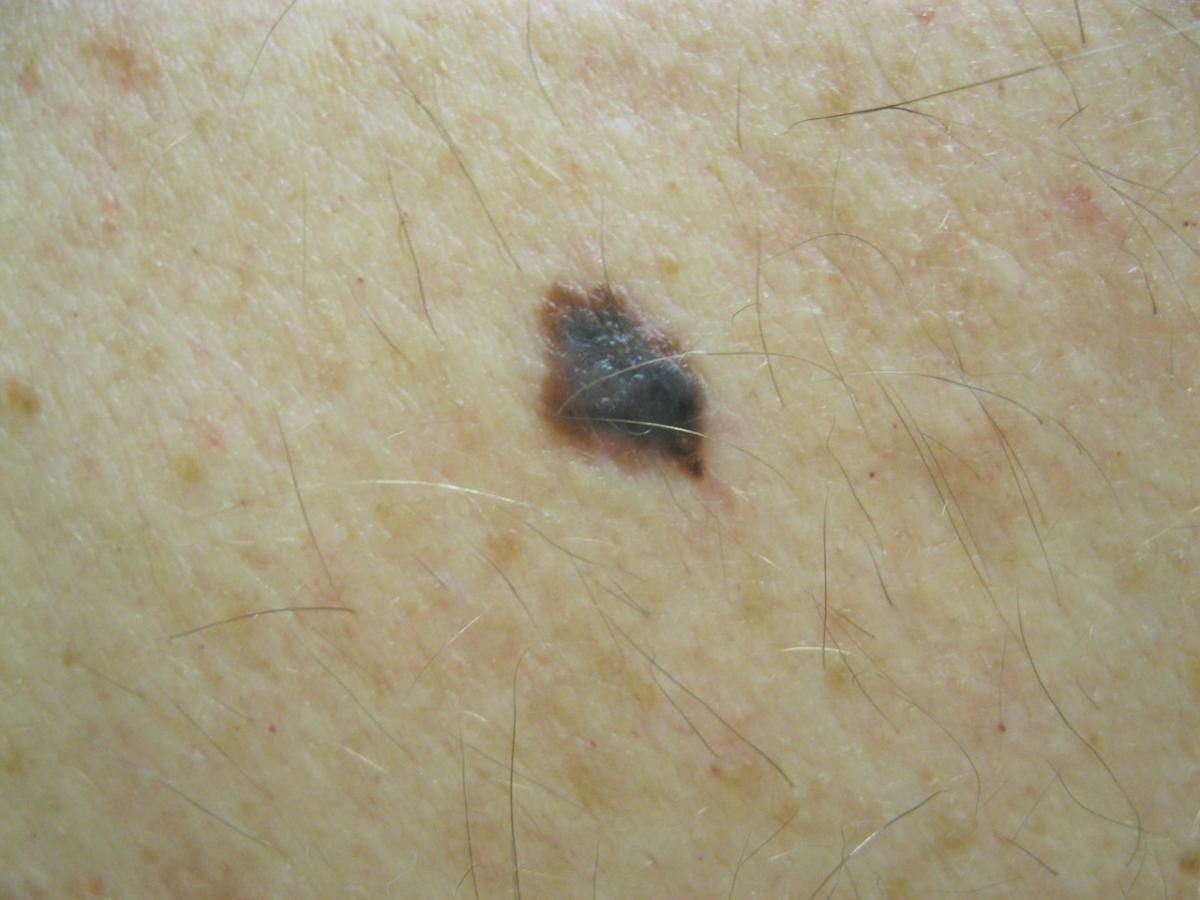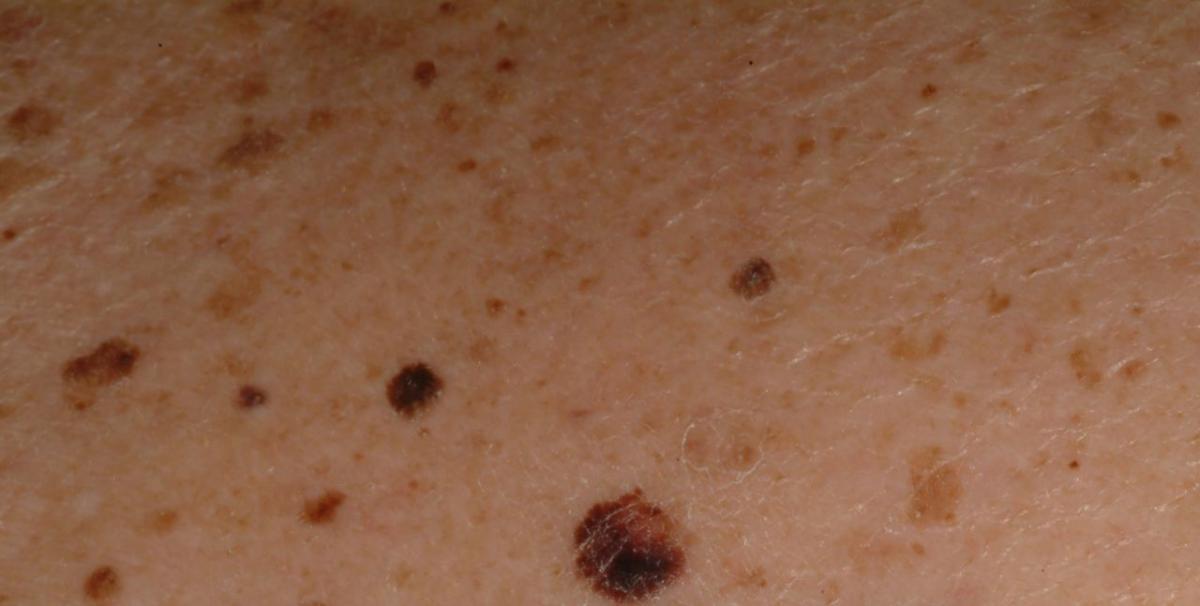By Mary Schwager for GalTime.com
Do you think that mole on your arm is suspicious? Or what about that lesion that's changed in shape? Could that skin tag be skin cancer? There's an app for that. Several in fact. But a brand new study found if you rely on skin cancer apps for a melanoma diagnosis, you could be putting your life at risk.
A new study just out in the Journal of the American Medical Association-Dermatology reveals three out of four skin cancer applications misdiagnosed potentially-deadly melanoma lesions at least 30 percent of the time. What the research team at the University of Pittsburgh School of Dermatology found even shocked lead investigator, assistant professor of dermatology and director of clinical trials, Laura Ferris, M.D., Ph.D. "I think one of the things that really surprised me is that one of the apps literally missed more than 93 percent of the melanomas."

Dr. Ferris launched the skin cancer app study after a patient came to her office and asked about them. Curious as well, Ferris whipped out her smartphone and downloaded four of the apps -- some were free, and some cost about five dollars. Her team then took 60 pictures of actual melanoma skin lesions and ran them through the apps. These cancers were all photographed before they were removed from patients and were confirmed to be melanoma by a board-certified dermatopathologist.
The apps work by having users just take a photo of the skin lesion with their smartphone. Three of the apps Ferris' team tried did a quickie analysis and gave a pretty instantaneous answer if the skin lesion was high or low risk of being a melanoma. The fourth app they tested works by having a board-certified dermatologist actually review the picture users take for $5 per mole. The results come back in about 24 hours.

How did the apps work? The app sensitivity (which is their ability to accurately identify melanoma) ranged from 6.8 percent to 98 percent. Some of the apps that seemed pretty slick and high-tech by drawing colorful lines and numbers over the mole and gave quick answers actually performed the worst. But the app that sends photos of skin lesions to a dermatologist for an actual review worked the best. It detected melanoma accurately 98 percent of the time.
Dr. Ferris says instead of using your phone to detect skin cancer, you may want to call your doctor and set up an appointment. "Something that's going to work in a matter of a minute on your smart phone wasn't really accurate -- at best, they miss 30 percent of the melanomas we presented to them. But the one that allows you to present the picture of a mole to a board certified dermatologist worked the best. In terms of what can you get out of your smartphone right now, we don't have a way to take the doctor out of it. Nothing out there was reliable enough to entrust with your life."

The apps did all download with disclaimers warning users of the usual jargon you can imagine -- "that they're only supposed to be a tool and may not be accurate" -- but Dr. Ferris worries patients may think they can rely on these apps and may avoid going to their doctor. Perhaps they're uninsured or want to avoid a copay. "Melanoma is deadly if left untreated but can be cured if it's caught and removed early, so anything that makes you delay seeking evaluation and treatment puts your life at risk."
Past president of the American Academy of Dermatology and American Society for Dermatological Surgery, Dr. Darrell Rigel, M.D., warns right now with medical smartphone apps it's the wild, wild west out there. "There's no regulation for it, anyone can write an app for anything, and most apps don't have life-threatening consequences if they're wrong, but these do."

The FDA currently doesn't regulate medical apps that aren't associated with an FDA-approved medical device, like cardiac monitors and radiologic imaging devices. Last June, Congress passed the FDA Safety and Innovation Act, which allows the agency to regulate some smartphone medical apps but how that's going to work is still... in the works.
Dr. Ferris points out, it's not that there's no role for apps in dermatology. There are actually very helpful apps available. Some allow you to take pictures of your lesions and track their growth. There are also apps that will text you reminders to do monthly skin cancer self-exams. But Ferris warns, don't rely on them for a medical opinion. "Nothing is going to compare to seeing your doctor, particularly your dermatologist if you have a concern about a mole. Melanoma is too serious to take a chance that 30 percent of the time you're going to be told your melanoma is harmless, when in fact its a potentially-deadly cancer."
All of the skin lesions pictured in this article are cancerous melanomas. Three out of four apps tested missed them all. Photos used with permission.
RELATED: 5 Health Warning Signs You Should Never Ignore
RELATED: Dispelling Five Common Skin Myths
More from GalTime.com:
For more on personal health, click here.
For more by GalTime, click here.
?
Follow GalTime on Twitter: www.twitter.com/galtime
"; var coords = [-5, -72]; // display fb-bubble FloatingPrompt.embed(this, html, undefined, 'top', {fp_intersects:1, timeout_remove:2000,ignore_arrow: true, width:236, add_xy:coords, class_name: 'clear-overlay'}); });
Source: http://www.huffingtonpost.com/galtime/skin-cancer-app_b_2507326.html
Celeste Holm Stephen Covey klimt bastille day breaking bad breaking bad food network star
No comments:
Post a Comment